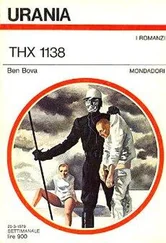Ben Bova - Able One
Здесь есть возможность читать онлайн «Ben Bova - Able One» весь текст электронной книги совершенно бесплатно (целиком полную версию без сокращений). В некоторых случаях можно слушать аудио, скачать через торрент в формате fb2 и присутствует краткое содержание. Год выпуска: 2010, ISBN: 2010, Издательство: Tor Books, Жанр: Триллер, на английском языке. Описание произведения, (предисловие) а так же отзывы посетителей доступны на портале библиотеки ЛибКат.
- Название:Able One
- Автор:
- Издательство:Tor Books
- Жанр:
- Год:2010
- ISBN:978-0-765-32386-6
- Рейтинг книги:4 / 5. Голосов: 1
-
Избранное:Добавить в избранное
- Отзывы:
-
Ваша оценка:
- 80
- 1
- 2
- 3
- 4
- 5
Able One: краткое содержание, описание и аннотация
Предлагаем к чтению аннотацию, описание, краткое содержание или предисловие (зависит от того, что написал сам автор книги «Able One»). Если вы не нашли необходимую информацию о книге — напишите в комментариях, мы постараемся отыскать её.
Able One — читать онлайн бесплатно полную книгу (весь текст) целиком
Ниже представлен текст книги, разбитый по страницам. Система сохранения места последней прочитанной страницы, позволяет с удобством читать онлайн бесплатно книгу «Able One», без необходимости каждый раз заново искать на чём Вы остановились. Поставьте закладку, и сможете в любой момент перейти на страницу, на которой закончили чтение.
Интервал:
Закладка:
Able One
by Ben Bova
ACKNOWLEDGMENTS
Although this is a work of fiction, the U.S. Missile Defense Agency’s Airborne Laser program actually exists. It consists of a megawatt-plus laser mounted in a specially modified Boeing 747-400F four-engined jet aircraft, much as described in this novel. The purpose of the system is to shoot down ballistic missiles soon after they are launched, while their rocket engines are still burning and they are quite vulnerable.
The program’s principal contractors include three major aerospace corporations:
Boeing: 747-400F aircraft; active ranging system; battle management system
Northrop Grumman: high-energy chemical oxygen iodine laser (COIL); advanced resonator alignment system; laser fuel supply
Lockheed Martin: laser beam control system; illuminator optical bench; nose-mounted turret
This novel could not have been written without the generous assistance of Colonel M. V. “Coyote” Smith, USAF, Scott Herman, Judy Reemtsma, and many others who provided invaluable information and insights. The accuracy of this work is in large part due to them; any errors of fact are my fault, not theirs. However, this is a work of fiction, so I have felt free to extrapolate from what is known today, where necessary to the story.
Ben Bova
Naples, Florida July 2009
To the memory of Arthur R. Kantrowitz, who guided the invention of the first high-power laser
It is the policy of the United States to deploy as soon as is technologically possible an effective National Missile Defense system capable of defending the territory of the United States against limited ballistic missile attack (whether accidental, unauthorized, or deliberate).
NATIONAL MISSILE DEFENSE ACT OF 1999 (PUBLIC LAW 106-38)First strike
Chattanooga, Tennessee
Hank Barstow frowned at the blank screen of his GPS box. Rolling down Interstate 75 at nearly eighty miles per hour, he was looking forward to making a breakfast stop at the Sticky Fingers restaurant a couple of his trucker pals had told him about. Food’s not all that much, they’d said, but there’s this really stacked blonde waitress…
But he needed the doggone GPS to find his way through the streets of Chattanooga and get to the restaurant. Hank had been through Chattanooga plenty of times on his runs down I-75 to Tampa. But this time he had to get off the highway and find that blonde.
And the GPS was dead. Hank pounded a big fist on the gray box mounted on his cab’s dashboard. Didn’t do any good. The doggone screen stayed blank.
A sign whizzed by: TRUCK STOP FIVE MILES AHEAD. I’ll pull in there and dig the road atlas out of the pile in back, he decided.
To Hank’s surprise, the truck stop was filled with tractor-trailer rigs. Unusual for this time of the morning. Drivers were standing around their rigs, a lot of them talking into cell phones. He found a spot out on the grass, parked his rig, and killed the engine.
As he climbed down from the cab he heard a familiar voice yell, “You too, Hank?”
Turning as he stepped onto the grass, he saw one of his old buddies, Phil Camerata, heavy with belly fat, face stubbled, plodding up toward him.
“Me too what, Phil?” Hank asked.
“GPS dead?”
“Yeah? How’d you know?”
Waving at the jam-packed parking area, Camerata said, “Everybody’s GPS is down. Whole GPS system is out.”
“Everybody’s?” Automatically, Hank fished in the pocket of his jeans for his cell phone.
Shaking his grizzled head, Camerata said, “Lotsa luck, buddy. Looks like most of the cell phones are out, too.”
In Manhattan the air was filled with the bleating horns of thousands of taxicabs, trucks, cars, and buses, like a rising chorus of wailing lost souls. .
The automated tollbooths in all the city’s bridges and tunnels had abruptly shut down, piling cars in long lines behind their unmoving barrier arms. Even in the subway tunnels automated MetroCard dispensers had gone dead.
Drivers leaned on their horns in maddened frustration. The streets and avenues were choked with honking, steaming vehicles whose sweating, puzzled, cursing drivers stared at the traffic lights, which had all gone blank.
Gridlock, all across Manhattan and rapidly spreading through the other boroughs. The helpless bleat of thousands of taxi, automobile, truck, and bus horns filled the air all across New York’s crowded, choked streets.
Gordon Hathaway swiped his Visa card through the slot in the taxicab’s bulletproof window, scribbled his signature on the strip of paper that came stuttering out of the chugging machine, then ducked out of the cab while the driver sat in sullen silence. Some sort of Asian, Hathaway thought: the driver was swathed in a white turban and had a deeply black curly beard.
Lower Broadway was a total bedlam of gridlock, cabs and trucks and city buses sitting unmoving, horns blaring insanely, drivers and radiators fuming. Do better on foot, Hathaway told himself as he headed down toward Wall Street.
Fifteen minutes later he was panting from the unusual exertion, his three-piece suit rumpled, his brand-new shirt soaked with perspiration. When he finally got to the lobby of the building where his brokerage firm was quartered, he saw a crowd of his fellow brokers milling about in dazed confusion.
“You hoofed it out here for nothing,” one of his buddies told him as Hathaway tried to push through the throng to the elevators. “The office’s closed.”
“Closed?”
“Whole damned market’s closed. All the computers are down. Nothing’s going to happen today, Gordo.”
Hathaway’s jaw dropped open.
“The New York Stock Exchange is closed? I can’t believe it!”
“Believe it,” said his buddy sourly.
In Boston’s Children’s Hospital the head of the surgical team gaped at the suddenly blank display screen, his blue eyes above his surgical mask going so wide you could see white all around the irises. “What happened?” he whispered harshly.
His chief nurse shook her head. “The screen’s gone out.”
“I can see that!” Louder, snarling.
One of the assistant surgeons said needlessly, “The patient’s open.”
The baby on the surgical table was only three weeks old. She was undergoing surgery to correct an aneurysm in her aorta that threatened to kill her before she’d seen one month of life.
“Get the screen back up!” the head of surgery demanded of no one in particular, of everyone in the surgical theater.
The actual surgery was being performed remotely, over an electronic link, by a surgeon in Minneapolis who was recognized around the world as the best and most experienced man for this particular procedure. But the link had abruptly shut down in the middle of the operation.
“Get it back up!” the head of surgery shouted again.
“We’re trying,” said the computer technician from her console off in a corner of the surgery theater. She was almost in tears.
“The patient. . .” said one of the nurses.
With a growl that was almost feral, the head of surgery said, “I’ll have to finish this myself, goddammit to hell.”
He was a very good surgeon, but not good enough. The infant died on the table, four days short of her first month of life.
In the headquarters of Travis Broadcasting Systems, in Atlanta, Herman Scott blinked unbelievingly at the wall full of monitor screens. Seven—no, eight—of the thirty had crapped out. Make it ten. In stunned amazement he watched as, one after another, the remaining twenty screens broke into hissing snowy static and then went dead gray.
The big electronic map that covered one entire wall of the monitoring center froze. Every last one of the pinpoint lights that showed where the satellites were in their orbits winked out.
Читать дальшеИнтервал:
Закладка:
Похожие книги на «Able One»
Представляем Вашему вниманию похожие книги на «Able One» списком для выбора. Мы отобрали схожую по названию и смыслу литературу в надежде предоставить читателям больше вариантов отыскать новые, интересные, ещё непрочитанные произведения.
Обсуждение, отзывы о книге «Able One» и просто собственные мнения читателей. Оставьте ваши комментарии, напишите, что Вы думаете о произведении, его смысле или главных героях. Укажите что конкретно понравилось, а что нет, и почему Вы так считаете.












